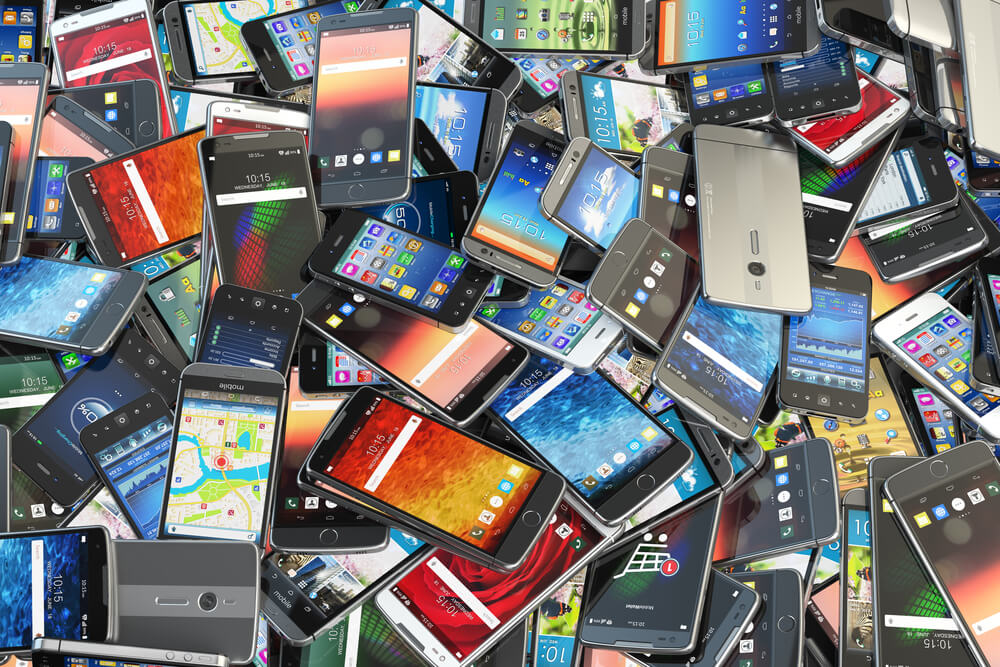Perhaps one of the most confusing experiences we all endure as consumers is the process of signing up for cell phone plans. While our entire world is now dominated by people clutching their cell phones at all times, most of us have a very poor understanding of our own cellular plans.
Here’s what you need to know about the economics of that fancy smart phone you’re clutching as we speak.
The basics
Given that the average cell phone bill is well over $100 per month on most major carriers, phones constitute a major expense in the life of the average American consumer. Interestingly, statistics show that Android users tend to pay slightly less than iphone users.
According to a recent study, the most expensive carrier is Verizon ($148 average monthly bill), largely because it enjoys the most robust coverage among the big four cell phone companies. Not far behind are AT&T ($141) and Sprint ($144), which are approximately the same price, while the cheapest carrier is T-Mobile ($120).
There are also many low-cost carriers that are often connected to one of the big four’s network. While their coverage may not be as good as the big boys’ networks, these plans are far cheaper than typical retail plans.
Bundled family plans tend to be cheaper per person, and many millennials are still on their parents’ plan. A significant minority of young people don’t contribute a dime toward their bill.
The nitty-gritty
Our fancy pants phones are remarkably expensive. The average smartphone in 2017 is expected to cost $567. In the not-so-distant past, cell phone companies subsidized the cost of these phones. Now, they’ve become enormously costly, and most cell phone companies offer financing if you’re not willing to slap down cash at the time of purchase.
Basically, when you buy a phone, the full retail price of the device is typically financed over a two-year period. Essentially, divide the price by 24 months and add that to your monthly bill. You can put money down if you want to bring your monthly cost down.
Unfortunately, by the time most of us pay off our phones, they’re either worn out or grotesquely outdated. Most of us are on proverbial hamster wheels when it comes to paying for cell phones – our bills pretty much never come down.
Your misfortune equals more profit
Almost everyone I know has experienced an incident which forced them to purchase a new phone immediately. Whether it’s theft, damage, or just misplacement, living without a phone is an impossibility in today’s hyperconnected world, so we usually rush to the nearest cell phone store seeking a solution immediately when dealing with such misfortune.
You’re likely well-aware that these incidents can cost you big time. Even if you have insurance, deductibles have ballooned in recent years, meaning that a new phone will still run you at least one hundred bucks (and nightmarishly leave you without a phone for a few days). If you don’t have insurance, good luck, because it’s a double whammy – you’ll still owe money on a your last phone, and might need to put money down on the next one.
Even if you did prudently buy insurance, your replacement will likely be a refurbished phone that might not be the exact same phone you’ve grown accustomed to using.
Companies have little incentive to change this system. These incidents are a win-win for all vendors, including the cell phone service provider and the smartphone manufacturer.
What should you choose
I’ve had the unique experience of having phones with three out of the four major carriers (all except Sprint). They each have their pros and cons, but AT&T and Verizon have the best coverage in cities nationwide. Beyond price point, always research if your cell phone provider of choice has good coverage before you commit to anything. If you have crappy coverage in your area, you’re not going to be a happy camper.
Consider your life habits and make an informed choice. Data usage, phone preferences and your overall lifestyle are all valid decision points. These key considerations can radically alter your ultimate choice. For instance, if you happen to travel abroad, please note that Sprint and Verizon use technology that pretty much confines their usage to the United States. Read: these phones probably won’t work in other countries.
In the end, a cell phone plan is a massive expense that should not be taken lightly. Consider all of your options, and buy insurance: you’ll appreciate the coverage if you misplace your phone, it gets stolen, or ends up submerged in a body of water.
Have something to add to this story? Comment below or join the discussion on Facebook.
Header image: Shutterstock









































